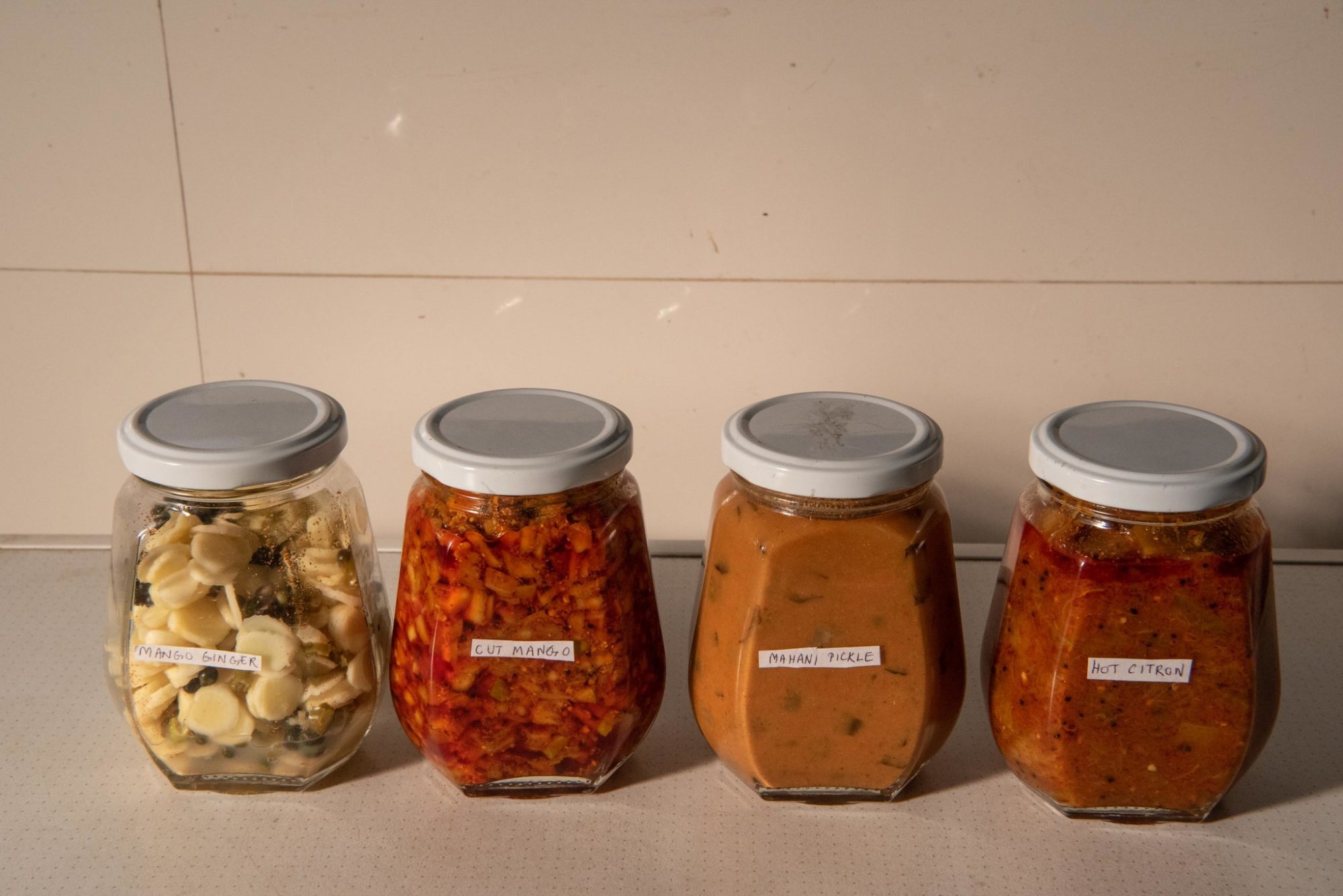
A few days ago, The New York Times published an article about Usha Prabakaran — AKA the “pickle queen” of India. She wrote and self-published a niche, cult classic book with 1,000 pickle recipes from around India. I really enjoyed the article as it combined my love for pickles, my hometown of Chennai, and impressive women.
It’s also an article about an entrepreneur, and there are a number of useful lessons for those of us in the business of building businesses:
1. Bootstrapping to product-market fit is a great path to follow
But over the next two decades, “Usha’s Pickle Digest,” self-published by an unknown author, with a first print run of just 1,000, became a cult classic in India and its diaspora — praised for its precision and scope, celebrated on blogs and podcasts and hunted down in shops, where it sold out.
2. Be disciplined about product scope and get it out there; avoid feature creep.
In her book, Ms. Prabakaran limited herself to 1,000 recipes. When I finally got my own print-on-demand copy of “Usha’s Pickle Digest,” through Amazon, I was dazzled.
3. Focus on the goal. Learn what you need about other industries in order to accomplish the goal.
Ms. Prabakaran, now 64, became known as India’s “pickle queen,”but she wasn’t interested in monetizing that title. “I know nothing about publishing, and I was never interested in selling books,” she said at her home in Chennai. “My job is to keep the past alive.”
4. Sustainability is important.
A straightforward “anti-waste” chapter includes recipes for plantain skins, jackfruit seeds, ridge-gourd peels and lime leaves, which often end up in the compost heap. While restaurant chefs make headlines now for cooking less wastefully, pickling has always been about saving the scraps, developing flavor and texture with ingenious frugality.
5. Be laser focused on what actually matters. And you get to decide what matters.
Ms. Prabakaran is small-framed, with a wicked sense of humor and a big, throaty laugh. Her forehead is dimpled where the tumor was removed, close to the hairline, and she has no interest in reconstructive surgery.
“People care too much about looks,” she said with a shrug. “If I have any spare time, I want to work on my books.”
6. Don’t rest on your laurels. Move onto the next release, next product.
Ms. Prabakaran is at work on a second book, turning her attention to Indian rasam, a kind of soup.
7. Leave your customer feeling intense joy
The pickle did what all great pickles do: It revived me with a ripple of salt and acidity. The grainy oil tickled with chiles and citrus. It had the effect, with every breath, of filling my lungs with more air so I could breathe more deeply. And it made everything on the plate taste bigger, stronger, hotter, better.
“Isn’t it absolutely dynamite?” she asked. The question was rhetorical. She was grinning.
8. Founder-market fit is important. Do the work to know your space.
Ms. Prabakaran was hooked. She apprenticed herself, learning to turn jars in the sun so the fruit dried evenly, and to combine new and old tamarinds to balance out their acidity levels. She made so many pickles that she often gave jars away to friends and family, who begged her to write down a few recipes and share them. As she tried to standardize the recipes, her project became increasingly more ambitious.
9. Be unstoppable and don’t take no for an answer.
She spoke with publishers, and when none were interested in her idea, Ms. Prabakaran decided to do it herself.
10. Mission matters. Find the “why” that is bigger than yourself.
Ms. Prabakaran worried that without documentation, the gradual loss of this knowledge was inevitable — that more and more people would make fewer and fewer pickle varieties, until eventually, the expertise was lost.
“The reason for writing the book was to ensure that the vast culinary heritage of this land stays on the map,” she said.
11. Be resourceful to get what you need.
12. Focus intensely on the product your customers will see. You need to know it in extreme detail.
“My friends called me a crafty devil, because I could wriggle a pickle recipe out of anyone,” Ms. Prabakaran said. After she narrowed the recipes down from a catalog of 5,000, she tested each one in her home kitchen three times — a more thorough process than is used for many glossy cookbooks from big publishers.
13. Ignore the doubters, they may sometimes be friends or allies.
Friends who had supported her pickle book were skeptical — was there really so much variation when it came to rasam? Would she even be able to find 1,000 recipes this time around? And why devote a whole book to something so ordinary?
14. Be willing to do the hard, unglamorous work to make something great.
Ms. Prabakaran was undeterred. She sat down to write a love letter to rasam as a genre, extolling its value and declaring it worthy of celebration. Then she spent 10 years researching it, gathering and testing recipes, documenting patterns and anomalies.
15. Ignore the gatekeepers, work around them.
Ms. Prabakaran plans to self-publish the book in March. She wants to make it easy for cooks to find, right from the start, even if that means giving it away for free.
Entrepreneurs come in many forms. Ms. Prabakaran has displayed so many of the traits that make an entrepreneur successful. I recommend you read the article yourself. In addition to new lessons you may find, you will get a peek into a fascinating world.
I now own the pickle book (thanks, Amazon) and I’ll be on the lookout for the book on rasam. I’m not a great cook, but I always want to support the entrepreneurs who inspire.